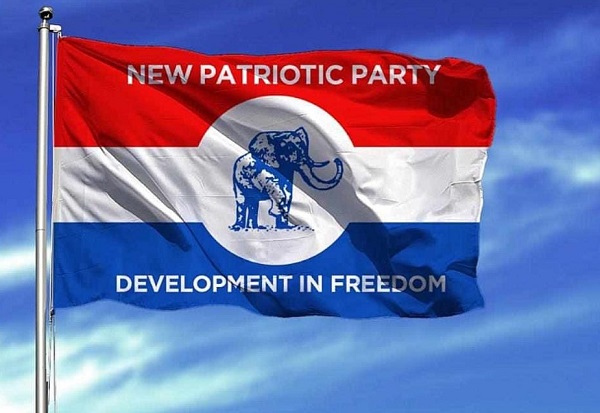Reasons for NPP’s Defeat in the 2024 General Elections
6, 1, 2025
952

The New Patriotic Party (NPP) lost the 2024 general elections due to several interconnected factors:
1. National Service Posting Fees
Party members were reportedly charged fees for National Service postings and repostings, alienating grassroots supporters who felt exploited.
2. Delayed Publicity of Achievements
Development projects were not effectively publicized until just weeks before the elections, failing to resonate with the electorate.
3. Lack of Infrastructure in Strongholds
The Ashanti Region, a stronghold for NPP, lacked significant infrastructure, such as interchanges, in contrast to Accra. This neglect led to voter dissatisfaction.
4. Corruption Allegations
Opposition parties capitalized on allegations of corruption within the NPP government, eroding public trust.
5. Protocol Benefits in Education
The Free SHS policy removed traditional "protocol" benefits for headmasters, mistresses, and teachers, creating dissatisfaction within the educational sector.
6. Taxes on Betting
The youth opposed new taxes on betting, which they viewed as targeting their limited income sources.
7. COVID-19 Levy
The introduction of a COVID-19 levy during an economic downturn angered citizens struggling with rising costs.
8. E-Levy Introduction
The E-Levy, seen as burdensome, was a contentious issue, particularly among small-scale traders and digital service users.
9. Rising Costs of Goods
Frequent increases in prices of essentials like food and construction materials exacerbated public discontent.
10. Fuel Price Hikes
Persistent fuel price hikes drove up transportation costs, directly affecting household budgets.
11. E-Gate at the Airport
Immigration officers who lost unofficial earnings due to E-Gate technology turned against the NPP. Though, the E-Gate has helped travellers almost every traveller was praising President Nana Addo Danquah Akufo Addo and Vice President Dr. Mahamudu Bawumia for this good initiative which actually has eased the number of hours they spent before leaving Airport.
12. Mismanagement of School Feeding
Issues with the Free SHS feeding program, including shortages and food mismanagement, affected both staff and students.
13. Unemployment Among Party Members
Many party members struggled to secure jobs or had to pay exorbitant fees to gain employment, fostering resentment.
14. Vote Apathy
Disengagement among traditional NPP voters contributed significantly to low turnout in their favor.
15. Neglect of the Central Region
Limited appointments, poor infrastructure, and unemployment in the Central Region alienated voters, leading to significant losses in parliamentary seats.
16. Neglect of Constituency Executives
Local party executives felt sidelined in decisions regarding jobs, contracts, and resources.
17. Scholarship Mismanagement
Scholarships were sold or denied to deserving party members, demotivating grassroots campaigners.
18. Online Recruitment Frustrations
Party members felt excluded from opportunities due to reliance on impersonal online application processes.
19. Misallocation of Campaign Resources
Campaign logistics and funds were disproportionately directed to parliamentary candidates, sidelining constituency leaders.
20. Ineffective Leadership by Appointees
Some government appointees were unresponsive to party needs, prioritizing personal gain over collective efforts.
---
Proposed Solutions to Address the Issues
1. Strengthen Grassroots Connections:
Eliminate exploitative practices like charging fees for National Service or employment opportunities.
Engage constituency executives and local leaders in decision-making processes.
2. Enhance Publicity:
Launch consistent, long-term campaigns to showcase completed and ongoing projects.
3. Focus on Infrastructure Equity:
Prioritize development in stronghold regions like Ashanti to demonstrate tangible benefits.
4. Combat Corruption:
Implement strict anti-corruption measures and increase transparency in government operations.
5. Revise Educational Policies:
Balance Free SHS benefits with incentives for educators to address their concerns.
6. Tax Policy Reform:
Review taxes perceived as burdensome, like the E-Levy and betting taxes, to better align with public sentiments.
7. Economic Relief Programs:
Address inflation and stabilize prices of essential goods and services through strategic economic interventions.
8. Reinforce Job Creation:
Establish clear, fair processes for employment, reserving quotas for party supporters where feasible.
9. Effective Resource Allocation:
Distribute campaign resources equitably among candidates, constituency executives, and other stakeholders.
10. Engage Youth:
Develop targeted programs to engage and empower young voters, addressing their unique concerns.
11. Improve Leadership Accountability:
Establish performance metrics for government appointees and ensure responsiveness to party and citizen needs.
By implementing these strategies, the NPP can rebuild trust among voters, strengthen internal cohesion, and position itself for future electoral success.
Copied
Powered by Froala Editor

